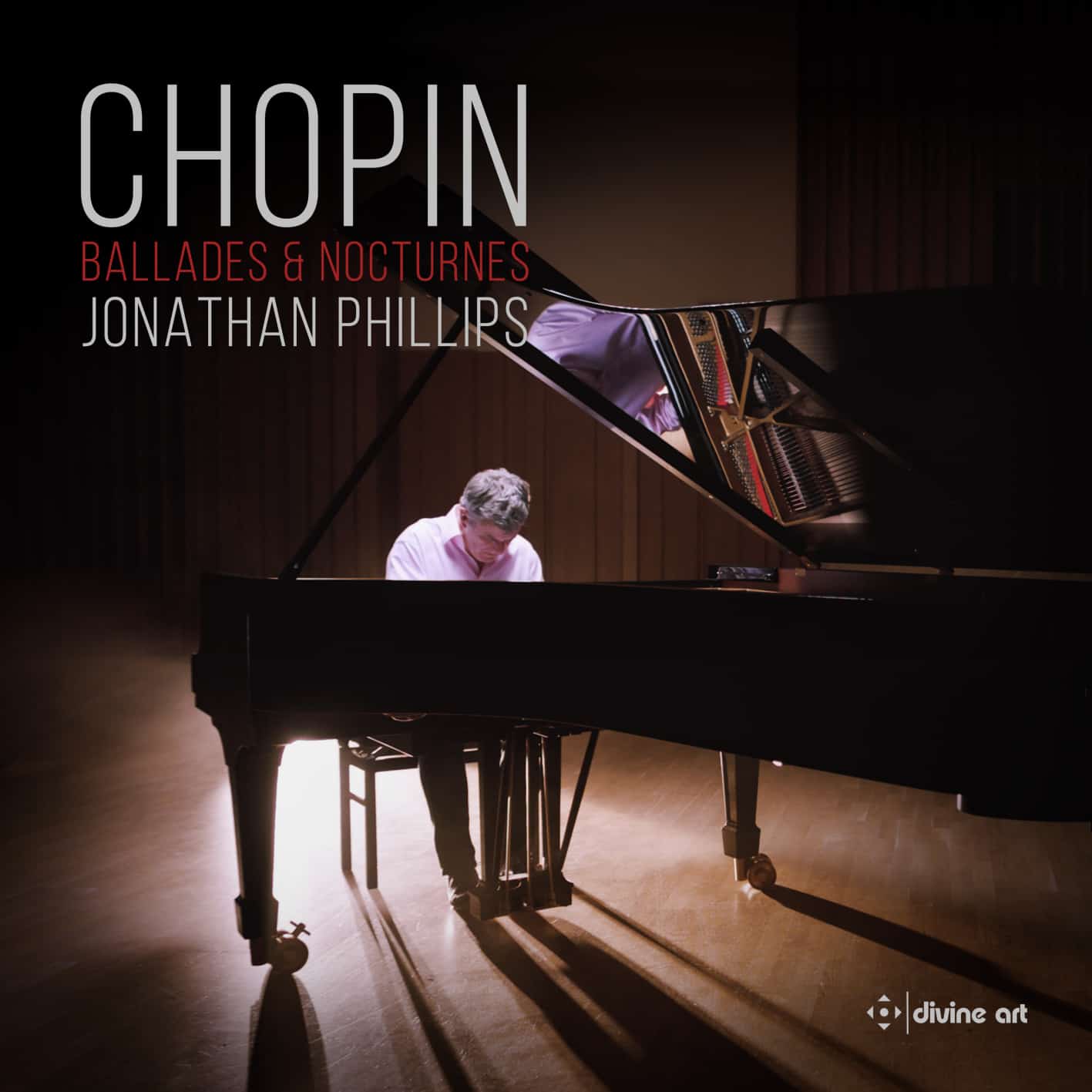InfoDad
There are so many recent recordings devoted to unknown, little-known, should-be-better-known and who-knew? composers that it is a genuine pleasure, once in a while, to encounter familiar repertoire that is exceptionally well-performed and makes no apologies for its popularity. This is perhaps particularly true for piano music, so much of which has emerged from obscurity in recent years or has been written in our own time. Jonathan Philipps’ Chopin ballade cycle for Divine Art is a fine example of highly skilled, nuanced playing of music that is extremely well-known but still leaves plenty of room for personalization of response and interpretation. Phillips brings out the majesty and dynamism of Ballade No. 1 to fine effect, and pays particularly close attention to the work’s varying time signatures – it is the only one of the four ballades with a level of structural variability, the three others all being written in 6/8 time. The quiet opening of Ballade No. 2 is highly effective here, and it contrasts suitably sharply with the subsequent Presto con fuoco material. In Ballade No. 3, which is more tight-knit than the others, Phillips again excels with contrasts, here between the extended opening dolce material and the later chordal passage that in turn gives way to both right-hand and left-hand runs. Everything flows easily and naturally while upholding the underlying organizational elements, but without drawing overmuch attention to them. The quiet opening of Ballade No. 4 is noteworthy in Phillips’ reading, and the work’s contrapuntal nature comes through clearly while in no way diminishing its emotional expressiveness. And then, having taken the measure of these works, Phillips complements them with five selected Nocturnes, whose comparative structural simplicity and emotive directness stand them in good stead as comparable to, but very different from, the longer pieces. No. 2 flows gently, its familiar lines unfurling with care and consistency; it is followed by No. 9, which has a bit of a stop-and-start quality that comes across as an emotional balancing act; next is No. 4, nostalgic and sweet; then No. 15, the only minor-key nocturne chosen by Phillips and a work whose pervasive melancholy here seems tinged with world-weariness; and finally No. 17, longest of the five heard here, which spins itself into a kind of cradle song of gentility and warmth. Phillips’ impeccable musicality is everywhere apparent throughout the recording, and his love for Chopin comes through clearly as he manages all this music almost caressingly, allowing the feelings it evokes to flow freely from the piano to the listener.
@divineartrecordingsgroup
A First Inversion Company
Registered Office:
176-178 Pontefract Road, Cudworth, Barnsley S72 8BE
+44 1226 596703
Fort Worth, TX 76110
+1.682.233.4978












